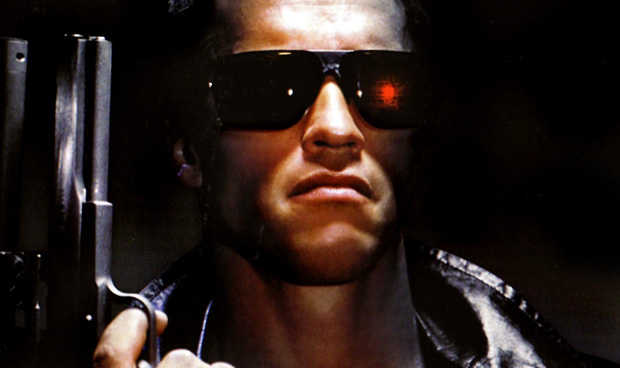NB: The following contains spoilers for all the Terminator films released so far.
Genisys probably seemed like a good idea at the time. After the so-so critical and financial performance of Terminator 3 and Terminator: Salvation, the fifth entry in the series would, as far as its producers were concerned, take the saga back to its glory days: the nightmarish chases of The Terminator and the eye-popping special effects of T2, widely regarded as the franchise’s high-water mark.
Skydance co-founder David Ellison, the latest Hollywood producer to pick up the Terminator rights, was certainly upbeat about Terminator: Genisys’ chances back in the summer of 2014. In a New Orleans industrial unit, where the bulk of the film’s interior sequences were then being filmed, he talked enthusiastically about what Genisys was and was not: it definitely won’t be a reboot, he said, but then, it won’t be a sequel, either. It would take place after Terminator 2: Judgment Day, effectively ignoring T3 and Terminator: Salvation, but cinema-goers wouldn’t need an in-depth knowledge of the series to follow its plot.
In making Genisys, Skydance’s model was, as Ellison himself admitted, the company’s own Star Trek reboot: a tricksy, timey-wimey means of taking an existing franchise and having its most familiar characters played by a younger cast. So in the place of Linda Hamilton we had Emilia Clarke, fresh out of Game Of Thrones, to play Sarah Connor. We had Jai Courtney, star of acclaimed hit sequel A Good Day To Die Hard, replacing Michael Biehn as Kyle Reece. And just as Star Trek brought in Leonard Nimoy as Spock Prime – a hold-over from the much-loved 60s TV series – so Genisys would employ Arnold Schwarzenegger as a link to the hit 80s and 90s franchise. Just to ram home Genisys’ geek credentials, former Doctor Who star Matt Smith was given a small yet pivotal role as a future resistance fighter.
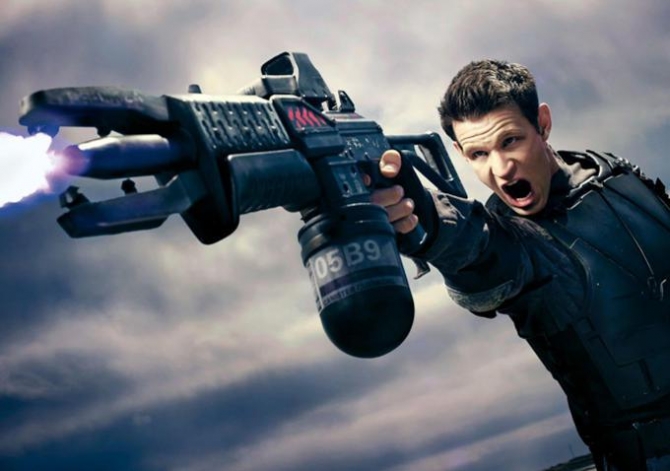
Skydance’s plans for Terminator were big: Genisys would be the first in a trilogy of movies, and there were even hints, in 2014, that a spin-off TV series could be in the works. Above and beyond the storytelling, casting and tonal problems with Terminator: Genisys, which came out in the summer of 2015 – which we’ve picked at many times in these pages in the years since – there was a more fundamental problem with this reboot-sequel hybrid.
For this writer, the problem is this: turning The Terminator into a one-size-fits-all franchise capable of competing with the likes of Marvel and Star Wars is an utterly thankless task.
The original Terminator, released in 1984, was a dark, relentless and extremely violent movie. Its writer-director, James Cameron, didn’t have a huge budget to make it, so he used his lack of resources to his advantage, with much of The Terminator taking place in down-at-heel, trash-strewn parts of Los Angeles. Terminator 2 turned his sci-fi chase concept into a summer event movie, where gunplay and violence collided with what were in 1991 cutting-edge special effects. The film was less graphic and nasty than its predecessor, but all the same, Cameron didn’t knock off all the spiky edges – the vision of a future devastated by nuclear war still packed a punch. Its villain, Robert Patrick’s T-1000, still killed without remorse or pity. The movie was still rated R.
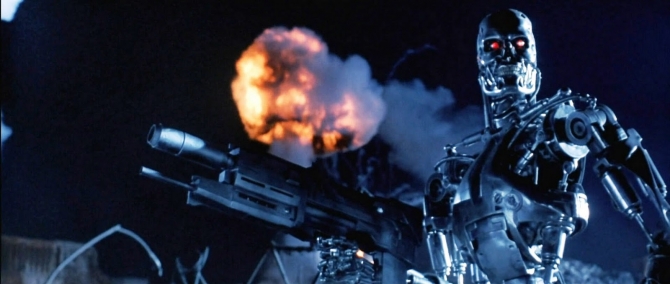
Above all, Terminator 2 didn’t devote a frame of its running time to teasing sequels; it was, for the most part, a self-contained story. Terminator: Genisys may have been in love with T2, with its shape-shifting cyborgs and breakneck chases, but it roundly missed the point of what made Judgment Day so great. In trying to be all things to all people, Genisys weighed itself down with all kinds of extraneous stuff: a jaunt back to 1984 to appease fans of the original, and then a lurching left-turn to the year 2017 for an app launch party and some CGI-heavy action scenes. Where the earlier movies – yes, even T3 and Salvation – were straightforward, Genisys was over-wrought and full of eye-rolling plot conveniences.
As you’ll probably know by now, the Terminator saga will continue with a sixth entry, but that film will quietly draw a veil over Genisys‘ events. This places the franchise in what might be a unique position in modern cinema: where each movie from Salvation onwards has effectively ignored the one before it.
“The question is, has the franchise run its course or can it be freshened up?” Cameron said earlier this year. “Can it still have new relevance now where so much of our world is catching up to what was science fiction in the first two films? We live in a world of predator drones, and surveillance, and big data, and emergent AI […] Right now we are leaning toward doing a three-film arc and reinventing it. We’ll put more meat on the bones if we get past the next couple of hurdles as and when we announce that.”
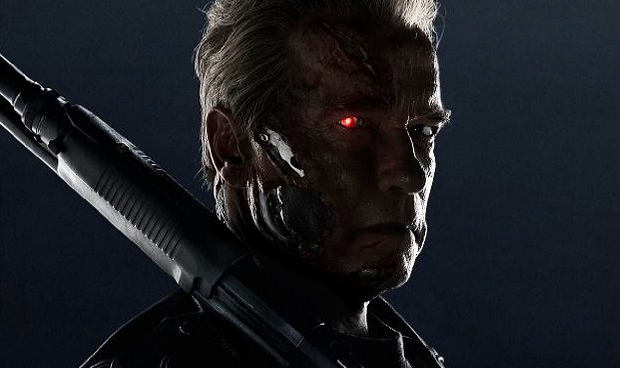
We have, of course, been here before. When producers Mario Kassar and Andrew Vajna re-acquired the rights to the Terminator after Carolco went bankrupt in 1996, their plan was to make a trilogy of sequels, of which Rise Of The Machines was intended to be the first. Back in 2003, not long after the release of T3, a fourth sequel was already in the works, which would have continued the story of John Connor (played by Nick Stahl) and his love interest Kate Brewster (Claire Danes). Instead, the Terminator rights moved over to another production company, Halcyon, and continuity with T3 was essentially dropped; the John Connor role went to Christian Bale, and the Kate Brewster character vanished entirely.
When Terminator: Salvation, released in 2009, failed to do the business expected of it, the franchise rights were sold again – this time to Skydance, where it currently remains to this day. After Genisys essentially spent two hours building a narrative bridge to nowhere, James Cameron is being brought back into the fold, this time as its story writer and producer. (Tim Miller, who scored a big hit with Deadpool for Fox, will direct.) Terminator 6 – we don’t yet know its official name – will represent the latest attempt at making a triptych of Terminator flicks.
You can probably see a pattern forming here. Producers are well aware of how recognisable the elements of these movies are – huge drones patrolling the skies of a nightmarish future, the skeletal robots, Schwarzenegger firing big guns – but all have struggled to figure out a means of turning them into a franchise with narrative legs. Let’s face it, what producers really want is the kind of loose framework that allowed Jason Voorhees to hack up successive casts of unknowns in the Friday The 13th series, or for superheroes to keep going on new adventures in 21st century comic book movies. The question is, can The Terminator be made to fit that mould without losing everything that makes it, well, The Terminator?
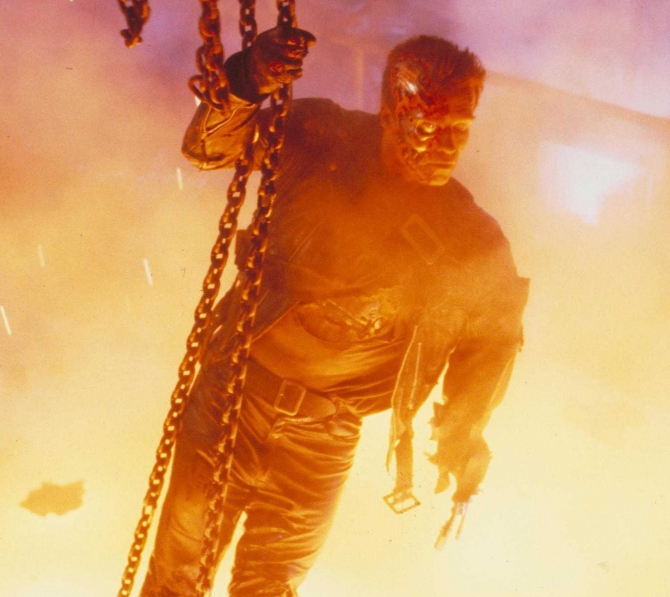
The return of James Cameron, who got the whole Skynet ball rolling in the first place, certainly sounds promising. But it’s telling, surely, that the ideas he’s knocked around in interviews sound mighty familiar. Big data, drones and AI? We saw a lot of that in Genisys, where Skynet was revealed to be the latest must-have operating system on the globe’s phones and laptops. Cameron’s said that he wants to “pass on the baton” from a returning Schwarzenegger and Linda Hamilton to a new generation of actors – again, something we’ve seen in a legion other sequels and would-be franchise builders, including (shudder) Indiana Jones And The Kingdom Of The Crystal Skull.
While we’ve no doubt that Cameron has the imagination to synthesise all these things into something more exciting, coherent and original than Genisys, we have one small, perhaps vain hope: that Terminator 6 (or whatever it winds up being called) tells a satisfying, self-contained story. That’s what the first two films did, and that’s partly why they were so effective – there were no narrative back-flips to explain strange events, and no awkward asides to introduce new characters and future villains (cf. The Amazing Spider-Man 2).
The economics of Hollywood movie-making may require the Terminator to become a series of sci-fi action blockbusters, but as we’ve already seen, forcing the Sarah Connor-versus-cyborgs story into the mould of a PG-13 franchise hasn’t exactly gone well in the past. If there’s any chance at all of reaching the heights of the 1984 and 1991 movies, the Terminator arguably needs to pare back its approach, and leave the cinematic universes and sprawling, multi-picture franchises to Hollywood’s other big guns.

